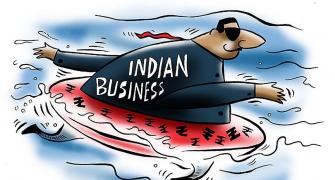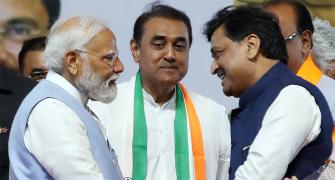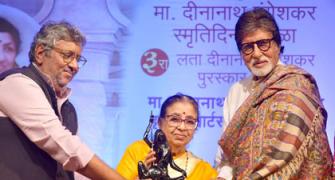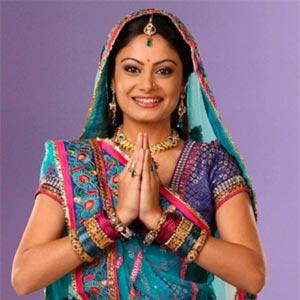Can you imagine a show made in India beating both The Voice and The X-Factor on ratings?
Vanita Kohli-Khandekar profiles Greymatter, the Indian content firm that made it possible.

Photograph: Courtesy Greymatter Entertainment/Facebook.
The Remix, which just finished its third season, is one of the biggest hits on Vietnamese television in recent times. The show, which airs on VTV3, beat both The Voice and The X-Factor on ratings. Some of its online episodes were watched over 6 million times on YouTube.
Since it first aired in 2015, it has been nominated for the Asian Television Award for the 'Best Music Show' twice.
The Remix is a format show with 10 teams that have a DJ, singer, producer, and dancers, who face off each other over 10-15 weeks. They compete to create the best remixes, or new versions, of popular songs.
At present, it is in pre-production for Season 3 in Indonesia, and has just finished Season 1 in China.
It is also a ray of hope for the Indian TV content producing industry.
That is because The Remix is, arguably, the first Indian format to be exported and find a market. It has been created by Mumbai-based Greymatter Entertainment and distributed by the Turkish, Global Agency, one of the world's leading distributors of TV content.
In theory, India's Rs 58,800-crore sector, with 180 million TV homes and 800 channels, is a huge opportunity for any content producer.
In practice, it is a nightmare.
There are thousands of producers, each willing to undercut the other, making for a market with no scale and pathetic margins.
About 80 per cent of the programming is commissioned by broadcasters, who own all the rights. They make money, primarily, from advertising.
There is, therefore, no room for innovation, and no time to develop formats.
Compare that to the United Kingdom, the world's second largest exporter of TV content. Largely because the rules insist producers, not broadcasters, own the IP or intellectual property. The producers, therefore, invest in developing format shows such as Who Wants to be a Millionaire that can then be licensed across the world.
Most Indian producers don't have the choice of owning their IP. If they did, many don't know what to do with it, as it needs serious resources to create IP and market it globally.
Greymatter, therefore, is an exception.
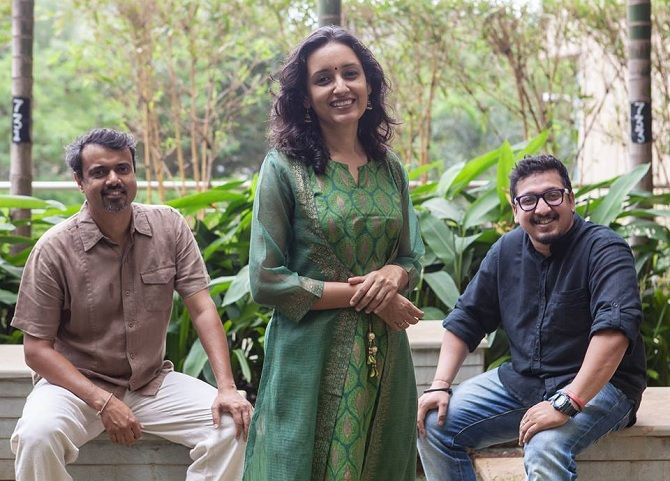
Chandradev Bhagat, wife Payal Mathur, and Rahul Sarangi set up Greymatter in 2009, after many years in television with firms, such as Ten Sports, Sony and IMG.
Their need for creative freedom had to be balanced with steady income. So, the production of sports for Sony and Star, or of shows such as Satyamev Jayate Mumkin Hai (Season 3), paid the bills.
In the meanwhile, they travelled to global content markets such as Mipcom in Cannes to "understand the space of ideas globally," says Mathur.
In 2012, things started falling in place.
Greymatter sold its first format, The Shack, to MTV India. In the same year, it took The Remix to Mipcom and signed on with Global Agency; Global does the selling and legal work and Greymatter does the rest depending on the terms.
In Vietnam and Indonesia, for instance, Greymatter was involved in executing the actual shoot of the show, and flying its own producer to those countries.
In China, the production is handled locally.
The money is good, but not yet great. The average licence fee, of $150,000-$200,000 per season, is about one-fourth of what some of the bigger global formats, say American Idol, would make per Season.
But, formats are very profitable and "adds annuity to our life cycle because they last over 8-10 years typically," says Bhagat.
Though formats brought about one-fourth of Greymatter's estimated Rs 20-crore revenues in March 2017, the operating margins at 50 per cent are more than twice that of basic production.
It is hoping formats become half its top line in the next two to three years. That is a lot of work.
"It takes 6-12 months to develop one format," says Bhagat.
Of its seven ready formats, The Remix, has been the most successful so far.
Another format, Street Stars, is being distributed by UK-based Story Lab, a part of Dentsu. Street Stars is a show searching for the best street talent in any city.
Greymatter has 10 formats under various stages of development.
The Remix's success has opened the doors for Greymatter. It will, however, be a long hard grind, before it can become an Endemol or a Shine.






